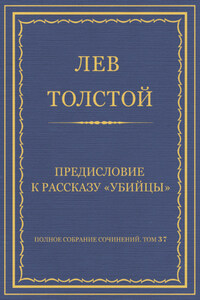According to our religious belief, the last best work of God is the human race. According to the observation of biologists, the highest product of evolution is the human race. According to our own natural inner conviction, this twofold testimony is quite acceptable: we are the first class.
Whatever our merits when compared with lower species, however, we vary conspicuously when compared with one another. Humanity is superior to equinity, felinity, caninity; but there are degrees of humanness.
Between existing nations there is marked difference in the qualities we call human; and history shows us a long line of advance in these qualities in the same nation. The human race is still in the making, is by no means done; and, however noble it is to be human, it will be nobler to be humaner. As conscious beings, able to modify our own acts, we have power to improve the species, to promote the development of the human race. This brings us to the children. Individuals may improve more or less at any time, though most largely and easily in youth; but race improvement must be made in youth, to be transmitted. The real progress of man is born in him.
If you were buying babies, investing in young human stock as you would in colts or calves, for the value of the beast, a sturdy English baby would be worth more than an equally vigorous young Fuegian. With the same training and care, you could develope higher faculties in the English specimen than in the Fuegian specimen, because it was better bred. The savage baby would excel in some points, but the qualities of the modern baby are those dominant to-day. Education can do much; but the body and brain the child is born with are all that you have to educate. The progress of humanity must be recorded in living flesh. Unless the child is a more advanced specimen than his father and mother, there is no racial improvement. Virtues we still strive for are not yet ours: it is the unconscious virtues we are born with that measure the rise of nations.
Our mechanical products in all their rich variety serve two purposes, – to show the measure of the brains that made them, and to help make better ones.
The printing-press, for instance, marked a century of ability; but its main value is to develope centuries of greater ability. Society secretes, as it were, this mass of material wherewith to nourish its countless young; and, as this material is so permanent and so mobile, it is proportionately more advantageous to our posterity than the careful preparation of some anxious insect for her swarm of progeny. Unless the creature is born better than his creators, they do not save him. He sinks back or is overcome by others, perhaps lingering decadent among the traces of lost arts, like degenerate nomad savages who wander among the ruins of ancestral temples. We see plenty of such cases, individually, showing this arrested social development, – from the eighteenth-century man, who is only a little behind his age and does not hinder us much, to the dragging masses of dull peasantry and crude savagery, which keep us back so seriously. This does not include the reversions and degenerates, the absolutely abortive members of society; but merely its raw stock, that heavy proportion of the people who are not bred up to the standard of the age. To such we may apply every advantage of education, every facile convenience of the latest day; and, though these things do help a little, we have still the slow-minded mass, whose limited range of faculties acts as a steady check on the success of our best intellects. The surest, quickest way to improve humanity is to improve the stock, the people themselves; and all experience shows that the time to improve people is while they are young. As in a growing cornstalk the height is to be measured from joint to joint, not counting the length of its long, down-flowing leaves, so in our line of ascent the height is to be measured from birth to birth, not counting the further development of the parent after the child is born.
The continued life of the parent counts in other ways, as it contributes to social service; and, in especial, as it reacts to promote the further growth of the young. But the best service to society and the child is in the progress made by the individual before parentage, for that progress is born into the race. Between birth and birth is the race bred upward. Suppose we wish to improve a race of low savages, and we carefully select the parents, subjecting them to the most elaborate educational influences, till they are all dead. Then we return, and take a fresh set of parents to place under these advantageous conditions, leaving the children always to grow up in untouched savagery. This might be done for many generations, and we should always have the same kind of savages to labour with, what improvement was made being buried with each set of parents. Now, on the other hand, let us take the children of the tribe, subject them to the most advantageous conditions, and, when they become parents, discontinue our efforts on that generation and begin on the next. What gain was made in this case would be incorporated in the stock; we should have gradually improving relays of children.










